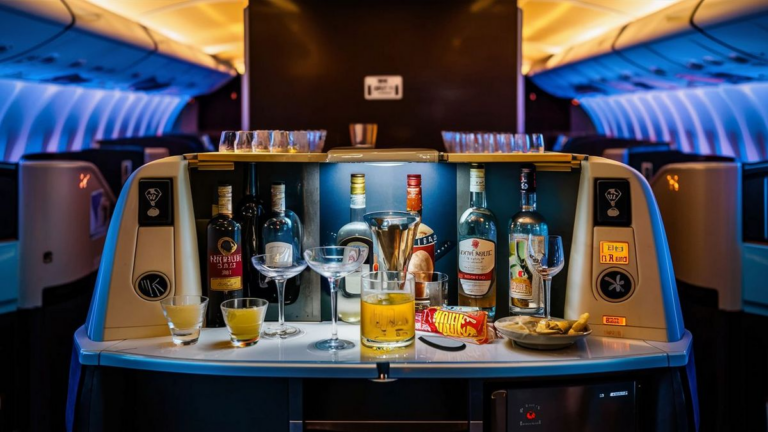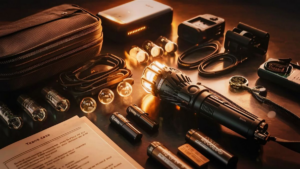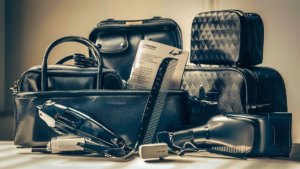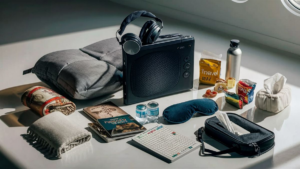There’s a pervasive myth surrounding the consumption of alcohol on airplanes – that you get drunker faster at high altitudes. But is there any truth to this belief, or is it just another piece of aviation folklore?
The Science Behind Alcohol and Altitude
Let’s delve into the science of how altitude might affect alcohol consumption. It’s true that the air pressure in an airplane cabin is lower than at sea level. This reduced pressure can lead to a slight decrease in oxygen saturation in your blood, a condition known as hypoxia. Some speculate that this could potentially enhance the effects of alcohol.
However, the difference in air pressure between sea level and typical cruising altitudes (around 35,000 feet) is not significant enough to have a substantial impact on how alcohol is metabolized by the body. While it’s true that hypoxia can affect judgment and cognitive function, there’s no evidence to suggest that it dramatically amplifies the intoxicating effects of alcohol.
Factors Influencing Alcohol Intoxication
Whether you’re on the ground or in the air, several factors influence how alcohol affects your body:
- Rate of Consumption: Drinking alcohol quickly can lead to faster intoxication, regardless of altitude.
- Body Weight and Metabolism: Heavier individuals tend to metabolize alcohol more effectively than lighter individuals.
- Tolerance: Regular drinkers often have a higher tolerance for alcohol, meaning they need to consume more to feel intoxicated.
- Food Intake: Eating before or while drinking can slow down the absorption of alcohol into the bloodstream.
Regulations and Safety Concerns
It’s essential to recognize that airlines have regulations in place regarding alcohol consumption onboard. Flight attendants are trained to monitor passengers’ alcohol intake and may refuse service to anyone who appears intoxicated. Additionally, consuming excessive amounts of alcohol during a flight can pose safety risks, including impaired judgment and disruptive behavior.
For these reasons, it’s crucial to drink responsibly when flying. Pace yourself, stay hydrated, and be mindful of your alcohol consumption, whether you’re at 30,000 feet or sea level.
So, do you get more drunk on a plane? The answer is not a straightforward yes or no. While altitude may play a minor role in how alcohol affects your body, it’s just one of many factors to consider. Ultimately, responsible drinking habits and awareness of your own tolerance levels are key, whether you’re on the ground or soaring through the skies.
Effects of Dehydration
One crucial factor that can exacerbate the effects of alcohol consumption, especially during air travel, is dehydration. The low humidity levels in airplane cabins can lead to increased dehydration, as passengers lose moisture through respiration and perspiration.
Dehydration can intensify the effects of alcohol, causing symptoms such as dizziness, fatigue, and headaches. Therefore, it’s essential to stay hydrated by drinking plenty of water throughout the flight, especially if you choose to consume alcohol.
Frequently Asked Questions
| Question | Answer |
|---|---|
| Does altitude affect alcohol tolerance? | While altitude may have minor effects on alcohol metabolism due to reduced oxygen saturation, it’s not significant enough to significantly alter alcohol tolerance. |
| Can drinking alcohol on a plane lead to faster intoxication? | Yes, factors such as rate of consumption, body weight, metabolism, and tolerance play a more significant role in intoxication levels than altitude alone. |
| Are there specific regulations for alcohol consumption on flights? | Yes, airlines have regulations in place to monitor alcohol consumption onboard and may refuse service to intoxicated passengers. |
| How can passengers mitigate the effects of alcohol during air travel? | Passengers can stay hydrated, pace themselves when drinking, and be aware of their alcohol consumption to minimize its effects during air travel. |
See also:






